Bacton Plasterers: When you are engaged in refurbishments or improvements on your house in Bacton you'll generally need to either have some old plaster walls patched up or fresh plaster applied to a new wall surface. Most folks would concur that plastering is a skilled occupation and although you may be quite useful at DIY, it's not the sort of project that you ought to try to do on your own, unless of course you're extremely confident in your abilities. This is even more important if there is a ceiling that needs skimming, since you'll probably get your home and yourself in a bit of a mess if you should attempt it. You'd be wise to call in a seasoned plasterer to do this kind of job, and although you should have no trouble tracking down a plasterer in Bacton, discovering one that has a time slot for your project might be more tricky. Plasterers, as with a lot of tradespeople, are typically in demand, therefore if it's feasible see if you can schedule the work several weeks before it needs doing.
Some plastering work is usually needed, even on the most modest of home renovation jobs. Generally it will be plastering over artex, skimming a dry lined partition, fitting mouldings or coving before decorating or plaster repair to get ready for tiling. In fact, it may possibly be any one of a large number of plastering related jobs.
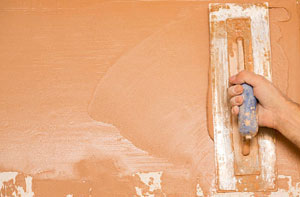
Ask potential Bacton plasterers if they have a portfolio of successfully completed work, the most critical factor is to employ plasterers who know exactly what they are doing. At all costs, you need to avoid hiring "cowboys" for such work. It is extremely difficult to correct shoddy plastering after the event, so it needs to be done right from the get go.
When a splash of emulsion is put onto your newly plastered ceilings and walls, the imperfections will become clearly conspicuous. Any uneven plastered surface will look even worse in bright daylight. So, make sure you only consider competent plasterers in Bacton.
It is always good to keep in mind that plastering needs to be level and smooth, because it's just a base upon which other materials are placed. It's quite easy to fill and smooth off any minor dents and cracks, but it's hard to conceal inherently uneven plastering. Hassles with the fitting of kitchen units, bathroom or kitchen tiling, the decorating of the surfaces and the fitting of skirting boards, can result from a shoddily plastered surface.
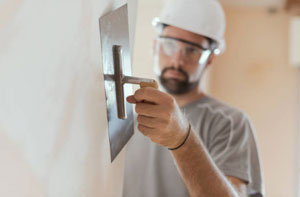
You can always tell professional Bacton plasterers because they invariably get a polished finish, straight from the trowel. You can tell when plastering has been carried out by an expert, as a quick rub down is all that's required and no sanding is necessary. If strenuous sanding is required, you can pretty much assume that your plastering has not been done properly. You should check the quality of the plastering meticulously, if you see electric sanding machines being employed.
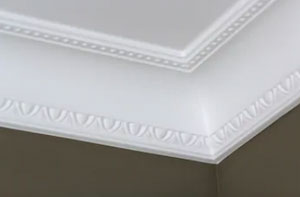
A typical reason for calling in a plasterer nowadays, is to plaster over an old artexed ceiling. Many properties in Bacton had ceilings that were coated with artex during the 1970's and 80's, when it was at its height of popularity. Most plasterers in Bacton will jump at the chance to plaster over that old artex ceiling, making it look more fresh and modern. It could be that you actually love artex and may want your smooth, flat ceilings transformed by applying this material. Most Bacton plasterers will be just as glad do this for you.
DIY Plastering Bacton: When you have a plastering project that needs to be carried out in Bacton, you've really got two choices. You can either get in touch with a reputable plasterer to complete the task, or have a bash on your own. Unless you're fairly good at DIY and have the self-assurance to tackle the job, it is probably best left to the experts. Picking a wall that already has an inaccurately plastered finish is recommended to start with, so your novice plastering endeavours cannot make it any worse. An out-of-sight area or a spare bedroom would be the perfect place to start. This will enable you to test out your newly found skills and will be a lot less stressful than trying to do a wall surface that everyone will regularly see. To a degree, it is possible for you to re-skim a wall surface as many times as you wish, therefore if you make a lousy job of it at the first attempt, you can just re-do it as your abilities get better.

You will be able to get some useful plastering tips by watching and following You Tube tutorials on the internet if you do not want to go to the extreme of taking a plastering course. The problem is that videos can frequently make it look easy, and plastering is a long way from that. Like the majority of "hands on" processes, the more that you practice the more skillful you become at plastering. Through trial and error you could even come up with you own techniques for getting that perfect finish. But if in doubt, keep to the tried and tested procedures. Since plastering is mostly about confidence, the more often you do it, the more confident you will get. You can take on some more advanced plastering projects when you have mastered the skill to a reasonable degree. If the whole thing goes pear shaped and you mess up the plastering, you can always call in a reputable plasterer to smooth out your mistakes.
Exactly What is Plaster?
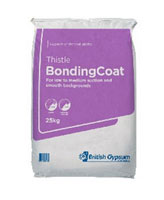
A commonly used building material which is employed for protecting and decorating ceiling and wall surfaces, plaster has been with us for hundreds of years. In the UK the term "plaster" typically pertains to a material that is utilized on the insides of buildings, whilst the material used on outside areas is called "render". Plaster blends generally contain either gypsum, lime, or cement, which all work in relatively similar ways. Plaster is a powder when manufactured and when required, is simply combined with water to produce a stiff, easy to work paste just before application. The merging of the plaster and water causes a chemical reaction, and heat is produced by means of crystallization, making the resulting paste set and harden.
Re-Skimming
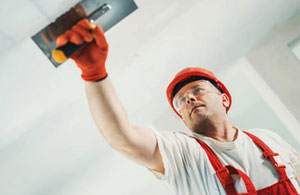
Plaster Skimming Bacton: Skimming or re-skimming is a thin finish of plaster trowelled over the top of artex, damaged plasterwork or plasterboard. Out of all the tasks which plasterers are asked to tackle, this is among the most common. A lot of home renovation projects call for new dry lined walls or inflict damage on existing plastered surfaces. These flawed surfaces can be easily transformed into smooth, glass-like finishes by an expert who is skilled in this technique. After a few days of drying out, you will be able to decorate over the new plastered area. The result should be a surface which is perfectly flat and fault-free.(Tags: Plaster Skimming Bacton, Re-Skimming Bacton, Skimming Bacton)
Plastering Courses Bacton

Plastering Courses Bacton: The easiest way to either master the basic principles of the art of plastering or to have the necessary knowledge and skills to kick start a career in the plastering trade is to put your name down for a plastering course at a training centre or college. For both total beginners and those eager to improve their plastering skills, you will find that there are a wide range of plastering courses available. Plastering courses are offered in both City and Guilds and NVQ with choices for either complete novices or intermediate tradesmen. Beginners courses in plastering (level 1) cover such things as mixing plaster components, fixing sheet materials, putting on set coats (to walls), putting on floating coats (walls), readying background surfaces and putting on scratch coats (to walls). Intermediate and advanced (level 2 courses and diplomas) deal with such things as plastering to external surfaces, dry lining, reverse moulding for fibrous work, cement and sand screed laying and fibrous plasterwork. Search on Google or Yahoo to discover plastering courses in Bacton. You are able to learn more about City and Guilds plastering courses by going HERE. (Tags: Beginners Plastering Bacton, Plasterers Courses Bacton, Plastering Lessons Bacton, Plastering Courses Bacton)
Polished Plaster Bacton
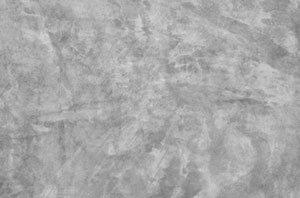
Polished plaster is a popular terminology for the finished surface of some plasters and for the description of contemporary types of conventional Italian plaster finishes. The expression covers an entire number of ornamental plaster finishes - from the very highly polished Marmorino, Lucidato and Venetian plaster to the rugged looking textured polished plasters. Used chiefly on inside ceilings and walls, polished plaster is meant to provide a finished surface that appears like polished marble, travertine or limestone. Polished plaster has got natural variations of shade delivering an impression of depth while still being smooth when touched. Special custom finishes can be created by combining these different types of plasters. With the use of natural or artificial colourants polished plaster can take on attractive tints or colours. Should you wish to achieve "marbling" effects in your plaster, or custom designs or colours that don't exist in nature, the possibility to tint Venetian plaster is especially important. Find out more about regarding polished plaster, it is recommended that you have a look at the Wikipedia "Polished Plaster" page. (Tags: Venetian Plaster Bacton, Polished Plaster Bacton, Marbled Plaster Bacton, Polished Plasterer Bacton)
Dry Lining (Plasterboarding)
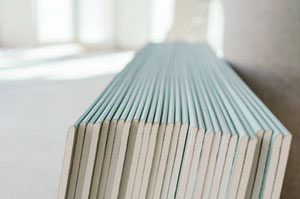
Dry Lining Bacton: A few plasterers in Bacton also provide dry lining services (plasterboarding), which are required in plenty of home improvements. By mounting plasterboard onto a timber studding, a brick or masonry surface or a metal frame, a flat, smooth wall surface is created which doesn't have to be plastered. Whilst you may decorate the plasterboard finish as it is, in reality most folks prefer to have the plasterboard skimmed with a fine coat of plaster afterwards to give it a harder and smoother finish. In terms of fittings, when fixing to a masonry or brick wall "dot and dab" bonding is used, when attaching to a metal frame self-tapping (or Jack-Point screws) are used and when attaching plasterboard to timber stud or joists, drywall screws or nails are used.
Screeding
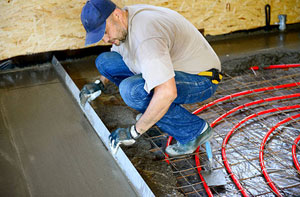
A number of plasterers in Suffolk also offer floor screeding services, where a new level floor surface is formed by the use of a cement mix. Mostly screeding is applied on top of a concrete sub-floor to encase underfloor heating pipes, to receive an appropriate floor finish (such as tiles, carpet or floor boards) or to be used as a finished hardwearing floor surface. This will significantly prolong the lifespan of the whole floor and positively affect its durability, quality and finish, for many years. Screed is only mixed by hand when small areas are involved. For bigger projects, a reliable screed pump should be used to guarantee a smooth and even mixture of cement and sand, which can then be pumped directly to the required location.
Pebble Dash
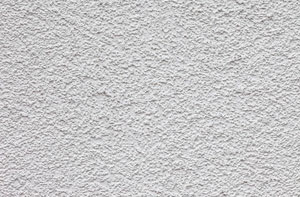
A product which is regularly used to protect and spruce up the external walls of dwellings, pebble dash (or roughcast) isn't everybody's cup of tea in Bacton. There are tradesmen specialise in pebble dashing out there, but sometimes Bacton plasterers will happily do this sort of job for you.
Perfect for both new and renovated properties, pebble dashing typically consists of 2 layers of a base coat made from lime and sand into which small pebbles, gravel or shells are firmly pressed to create a maintenance free, robust and attractive finish. (Tags: Pebble Dash Bacton, Pebble Dashers Bacton, Pebble Dashing Bacton, Pebble Dash Removal Bacton)
Plasterer Bacton
Exclusively working with plaster, a plasterer in Bacton is a tradesman who spreads a smooth, even layer of mixed plaster over an otherwise rough and unglazed surface, so that it can be decorated with wallpaper, paint, or other finishes. Plastering has been in existence for 100s of years and has been a trusted building repair and finishing method for thousands more. Nowadays, plaster is used to generate an even and smooth surface on the interior walls of commercial and residential premises. Plaster can also be employed to make ornate mouldings that can be used to decorate walls and ceilings. Also typically used in the finishing of extensions, garages, attic conversions and porches, plastering plays a vital role in a number of home remodelling projects in Bacton. (Tags: Plastering Bacton, Plasterers Bacton, Plasterer Bacton).
Plastering Tasks Bacton

Bacton plastering specialists will likely help you with plaster removal Bacton, asbestos testing, decorative mouldings, overskimming plaster walls and ceilings, magnetic plaster, bonding, Venetian polish plaster in Bacton, polymer screeds Bacton, ceiling replacements, repairing holes in ceilings and walls, metal studding partitions, dragged plaster in Bacton, dot and dab walling, plasterboard skimming, artex broken leather patterns, skirting board installation, plastering renovation, drywall installation and repair Bacton, blown plaster, skimming over artex, polished plaster, tyrolean rendering Bacton, coloured K Rend, interior screeding and rendering, lime plastering, stucco plaster Bacton, floor screeding and levelling, false ceilings, lay in grid suspended ceilings, pitted plaster in Bacton and other plastering work in Bacton, Suffolk.
Bacton Plastering Services
- Bacton Partitioning
- Bacton Plastering
- Bacton Plaster Skimming
- Bacton Screeding
- Bacton Plasterers
- Bacton Artexing
- Bacton Coving Installation
- Bacton Polished Plastering
- Bacton Plasterboarding
- Bacton Plaster Repairs
- Bacton Ceiling Replacements
- Bacton Float and Set
- Bacton Cornice Installation
- Bacton Plasterer
Other Useful Trades in Bacton Suffolk

Of course, when you happen to be doing home repairs and improvements in Bacton, Suffolk, you will likely need all types of different tradesmen and aside from a plasterer in Bacton, Suffolk, you might also need external wall insulation in Bacton, domestic cleaners in Bacton, waste clearance in Bacton, electricians in Bacton, plaster mouldings in Bacton, artexing in Bacton, painters and decorators in Bacton, internal rendering in Bacton, dry lining services in Bacton, pebble dashers in Bacton, screeding specialists in Bacton, polished plaster in Bacton, dry liners in Bacton, building contactors in Bacton, bricklayers in Bacton, carpenters in Bacton, wall tiling in Bacton or coving installers in Bacton.
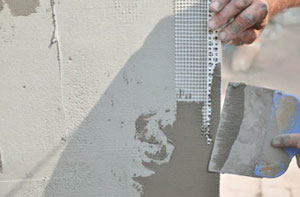 Plasterers Bacton
Plasterers Bacton Plastering Near Bacton
Plastering Near Bacton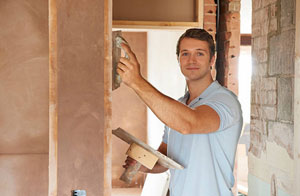 Plasterer Bacton
Plasterer BactonMore Suffolk plasterers: Stowmarket Plasterers, Sudbury Plasterers, Great Cornard Plasterers, Bury St Edmunds Plasterers, Mildenhall Plasterers, Woodbridge Plasterers, Beccles Plasterers, Lowestoft Plasterers, Felixstowe Plasterers, Haverhill Plasterers, Newmarket Plasterers, Ipswich Plasterers, Brandon Plasterers and Kesgrave Plasterers.
Rendering Bacton - Polished Plaster Bacton - Plastering Bacton - Coving Bacton - Cheap Plasterer Bacton - Decorative Plastering Bacton - Plaster Skimming Bacton - Plasterer Bacton - Plasterers Bacton




